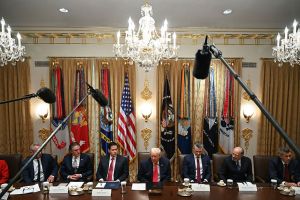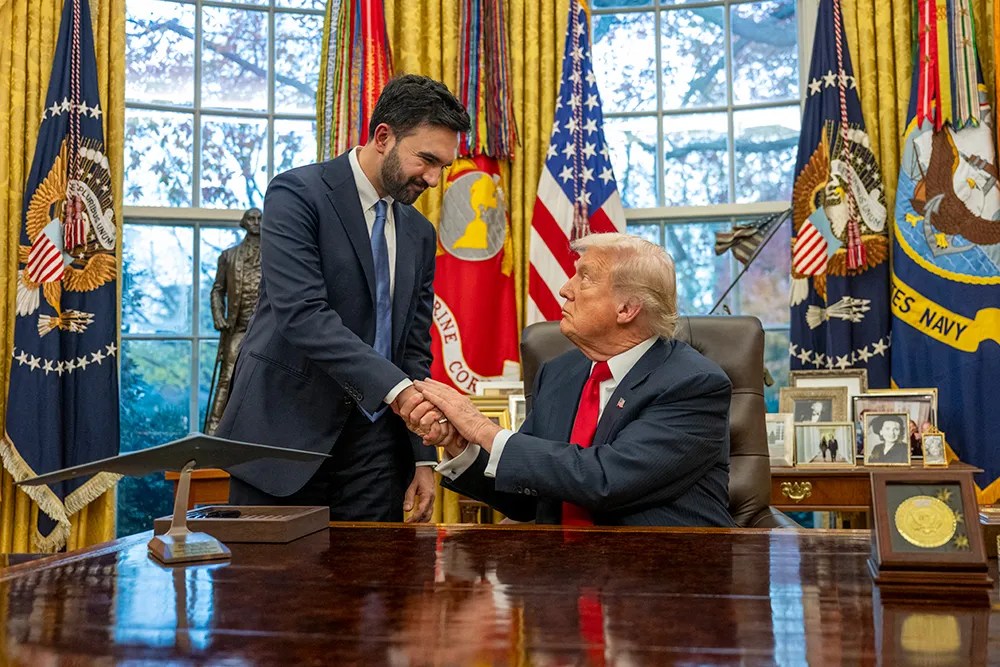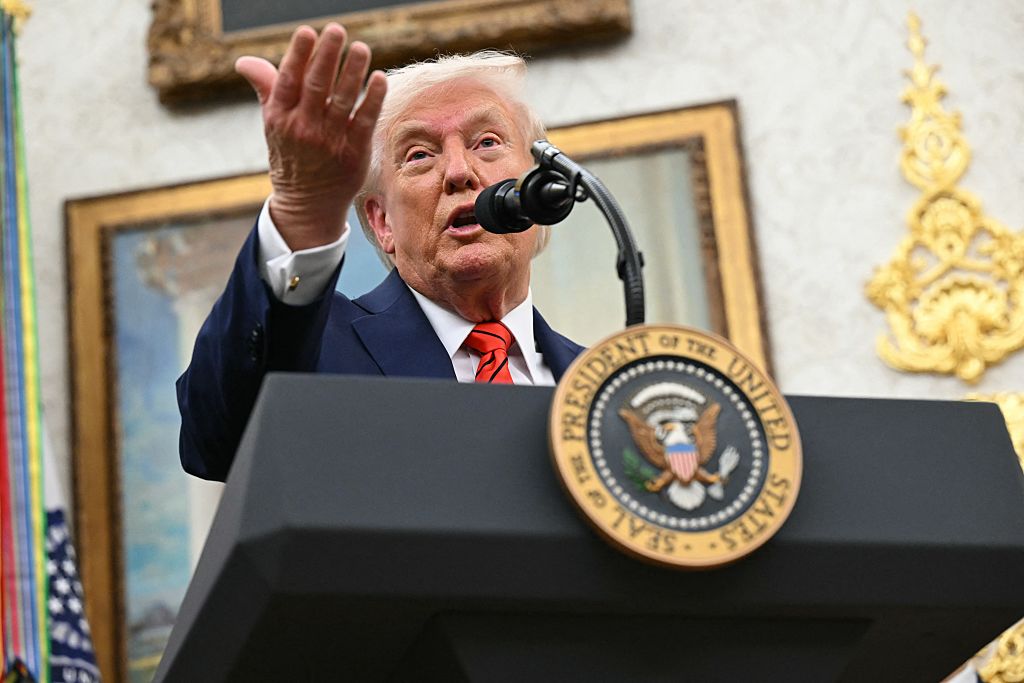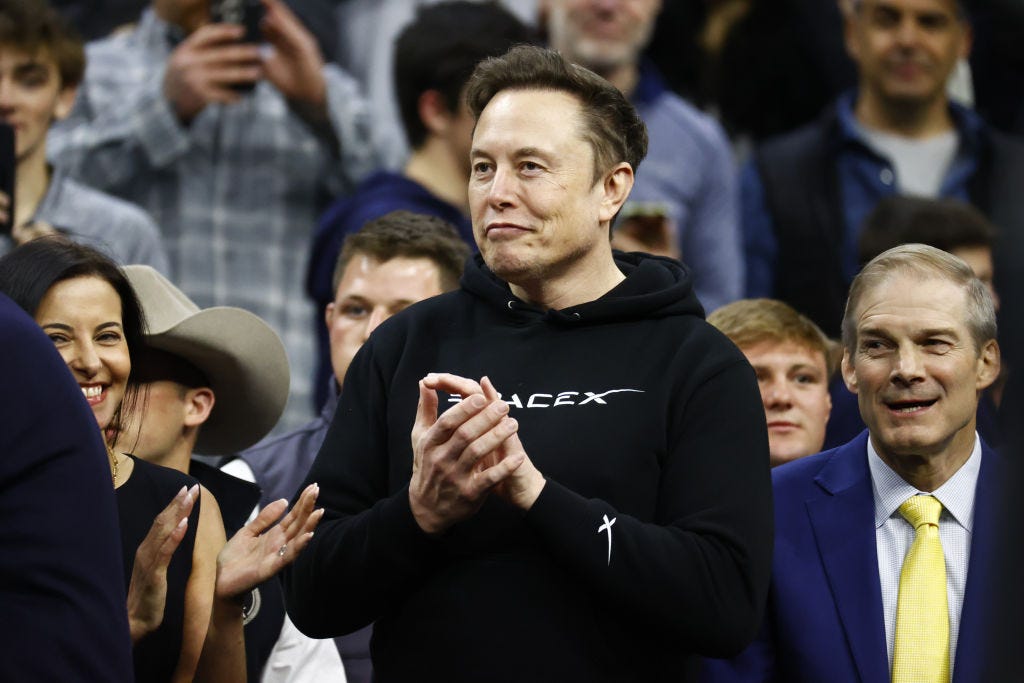Did Argentina pave the way for Elon Musk’s DoGE? At the very least, Javier Milei’s famous chainsaw has provided a roadmap for the South African billionaire to follow as he tries to slash the size of the US government budget.
Musk has spent much of the past few days and weeks decrying supposed “fraud” and “abuse” his team has discovered in its analysis of US government spending, a message he reiterated in his Oval Office interview this week. Set aside his rather peculiar and broad definition of fraud for a moment and a straight line can be drawn between his messaging and Milei’s.
The self-described anarcho-capitalist president waged his successful electoral campaign by lambasting his opponents as corrupt socialists and decrying government spending as waste. He waved his chainsaw above his head and promised to take on the largesse he saw in Argentine public spending. A viral video showed him facing a whiteboard with labels for each government department. He shouted “Afuera” (meaning “out”) as he tore off one after another. Milei has made no secret, too, of his admiration for Musk and Donald Trump. He wasted no time in visiting the newly crowned President Trump in Mar-a-Lago in the weeks after the November election and has made numerous trips to visit the Tesla founder. This admiration appears to be reciprocated.
Argentina’s equivalent of DoGE isn’t named after a “memecoin.” It has a rather more bureaucratic moniker: the Ministry of Deregulation and State Transformation. It is located in an ornate 1930s building in central Buenos Aires, as if to conjure up images of the period when Argentina was one of the world’s richest nations.
In just over a year it has halved the number of ministries and cut around 40,000 government jobs. Hundreds of laws have been struck from the statutes as the libertarian premier attempts to simplify and deregulate. The department even crowdsourced ideas from members of the public. El País reported that when the department asked for people to tell them about regulations which hindered their work, it received 8,000 complaints in two weeks.
It’s clear that Milei’s department sees itself as a potential model for the new US government. “The United States is going to start a path of transformation and Javier is an international representative of that message,” second-in-command Maximiliano Farina, told El País. “We are willing to share our experience and ideas with any ministry or country that requests it.”
On Trump and Musk’s scorecards, the Milei project will likely be seen as a success. Inflation — which was roaring towards hyperinflationary levels when Milei took office — has been tamed. The government budget was in surplus almost every month in 2024 for the first time in decades. The Argentine peso, despite Milei describing it as “excrement” just two years ago and pledging to replace it with the dollar, is going gangbusters. This has turned Buenos Aires from one of the cheapest cities in South America to one of the most expensive.
However, there are warning signs in the Argentine experience should Musk care to dig deeper.
Milei, a libertarian purist, is surely horrified by Trump’s decision to apply tariffs to imports
Poverty is gradually being brought back under control, but in the face of Milei’s early cuts it shot up to a rate of more than half of the population. Even with a more recent decline, millions of Argentines are estimated not to be able to meet their basic costs. While payouts for the poorest have been increased, many are still struggling. The inflation rate has fallen but prices are still rising — and the impact of a year of triple-digit increases has not gone away. A simple jar of instant coffee can cost upwards of $20 in some shops. Food rations for soup kitchens have gone undelivered, instead left to rot in warehouses, leading to reported increases in malnutrition in the poorest regions. Doctors in the country’s hospitals have also claimed that medication has been rationed.
It would be a mistake, of course, to assume that what happened in Argentina will definitely happen in the US. The two countries are faced with very different circumstances. Argentina was in the grip of one of the world’s worst economic crises when Milei took over. The US economy, by contrast, is in a fairly strong position. This should temper the effects of drastic cuts in a way that was not possible in Argentina. Milei and Trump also differ in quite fundamental ways when it comes to political ideology. Milei, a libertarian purist, is surely horrified by Trump’s decision to apply tariffs to a swathe of imports.
Either way, Musk should know that Argentina’s experience has not been only sunshine and rainbows.


























Leave a Reply